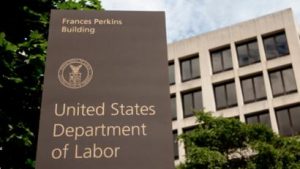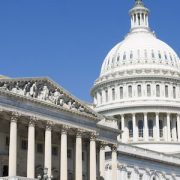Acosta Declines to Extend Delay of DOL Fiduciary Rule

Acosta Declines to Extend Delay of DOL Fiduciary Rule
Labor Secretary finds no legal basis to delay implementation; rule to become applicable June 9
By Mark Schoeff – InvestmentNews – May 23, 2017
Labor Secretary Alexander Acosta confirmed Monday night that the agency’s fiduciary rule will become applicable on June 9.
“We have carefully considered the record in this case, and the requirements of the Administrative Procedure Act, and have found no principled legal basis to change the June 9 date while we seek public input,” Mr Acosta wrote in a Wall Street Journal op-ed that was posted Monday night. “Respect for the rule of law leads us to the conclusion that this date cannot be postponed.
His decision is a victory for supporters of the rule, which requires financial advisers to act in the best interests of their clients in retirement accounts. The rule’s implementation has been delayed for 60 days — from April 10 until June 9 — while the DOL reassesses the regulation under a directive from President Donald J. Trump that could lead to its modification or repeal.
The DOL said that two provisions — one expanding the definition of who is a fiduciary and another establishing impartial conduct standards — would become applicable when the delay ends on June 9.
The agency said that it would continue its review until Jan. 1, the final implementation date for the rule.
Industry opponents pushed Mr. Acosta to extend the delay, arguing that the whole rule should be put on hold while the agency carries out Mr. Trump’s order. Supporters threatened to sue the agency if it pushed back the rule beyond June 9 in violation of rule making parameters set out in the APA.
In guidance Monday night, the agency said that it would not enforce the rule during the delay.
“During the phased implementation period ending on January 1, 2018, the Department will not pursue claims against fiduciaries who are working diligently and in good faith to comply with the fiduciary duty rule and exemptions, or treat those fiduciaries as being in violation of the fiduciary duty rule and exemptions,” the Field Assistance Bulletin states.
In addition to Mr. Acosta’s oped and bulletin, the agency released on a new set of frequently asked questions related to the transition period from June 9 to January 1, 2018.

